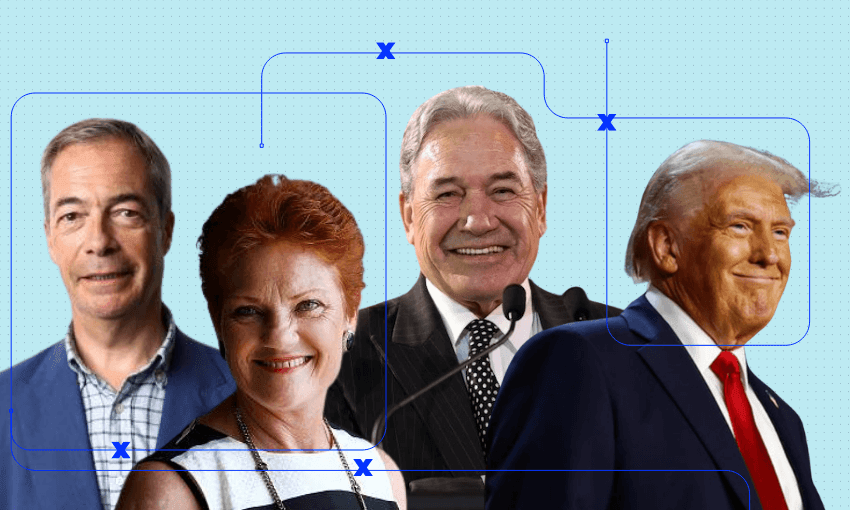While section 27 pre-sentencing reports are used by all ethnicities, Māori will be hurt most by National’s plan to defund them, say report writers Tara Oakley and Rebecca Cupples.
What is a section 27 cultural report?
Section 27 reports are pre-sentencing background reports. They go to a judge after an offender has pleaded guilty to an offence, or been found guilty at trial, and before they are sentenced for their crime.
Why is it called that?
They are named after section 27 of the Sentencing Act 2002. Section 27 allows an offender to ask the court to hear any people they choose to speak about their personal, family, whānau, community, and cultural background. It is an expansion of its predecessor, section 16 of the Criminal Justice Act 1985.
What’s the purpose of them?
Section 27 reports look for reasons, not excuses, for an offender’s behaviour. They consider how someone’s background might have contributed to their offending, if any actions have been taken to resolve the offending, and what support mechanisms might prevent further offending.
The backgrounds of offenders commonly include things like substance abuse disorders, mood disorders, personality disorders, neurodivergence, learning difficulties, illiteracy, brain injuries, poverty, and trauma – including extraordinary rates of historic family, sexual, and violent victimisation. State care is another commonality. One-third of children placed in state care between 1950 and 1999 were incarcerated as adults; for Māori, that figure increased to more than 40%.
If these drivers of offending go unaddressed, the likelihood of further offending is high. If a judge doesn’t know what factors contributed to an offender’s behaviour, they cannot address them at sentencing.
When did they start being used?
The first written section 27 reports didn’t appear until 2017. From 1985 until 2017, the provisions of the Sentencing Act went largely unused. This was because of obstacles to the act’s vision of having whānau address judges directly in court. Judges were ambivalent about whānau speaking in court, whānau had little faith in criminal justice system processes, and offenders often had no whānau willing or able to speak for them. Written reports subsequently became part of the sentencing process.
Have they worked?
Research published in 2020 found that lawyers who used section 27 reports perceived positive results, including better sentencing outcomes, enlightening the offender and reconnecting them with whānau/family/community, educating the judiciary and court practitioners, and reducing recidivism. They also suggested that reports can be used imperfectly and inconsistently, so there is scope for improving how section 27 reports are used by the court.
Who have they served the most and why?
A person of any ethnicity has the right to request a section 27 report. Our own data shows that there is an almost direct correlation between statistics regarding the different ethnicities processed through the court system, and the reports written. This is maybe slightly skewed towards Māori, however we believe this is perhaps the result of a misconception that these reports are only for Māori.
What’s being proposed for the next government?
Currently, a lawyer can apply for additional legal aid funding when a section 27 report may be helpful. The incoming government proposes to remove that funding. The National Party, for example, have said this is because s 27 reports are written by “individuals without expertise or qualifications” and are “designed to influence judges to deliver lighter sentences”.
This interpretation fails to acknowledge the purpose and intent of the Sentencing Act and the reports, along with the qualifications and experience of the report writers. For example, our report writing collective, Sentence Equality, includes graduates from law, criminology, sociology, anthropology, education and health disciplines.
If they were axed, what would that mean for defendants, particularly Māori?
Section 27 (and its predecessor) arose from a clear and urgent need to address inequitable criminal justice outcomes for Māori, to recognise that prison sentences were failing to prevent recidivist offending, and to prioritise options for rehabilitation and community-based redress where possible. Removing funding for section 27 reports is removing action on those fronts.
With funding for written reports removed, section 27 provisions will be available only to those with access to private financial resources. Wealthier groups would have a greater level of representation in Court than those in poverty. This is a significant concern for Māori who remain culturally, socially, and financially disenfranchised.
Written section 27 reports are available to, and used by, all ethnicities. However, the ongoing tragedy of Māori over-representation in court means defunding these reports has a disparate, negative impact for Māori who will suffer significant harm by the incoming government’s proposed actions.
Tara Oakley (Ngāti Tāwhaki, Ngāi Tūhoe) and Rebecca Cupples are report writers for Sentence Equality.





